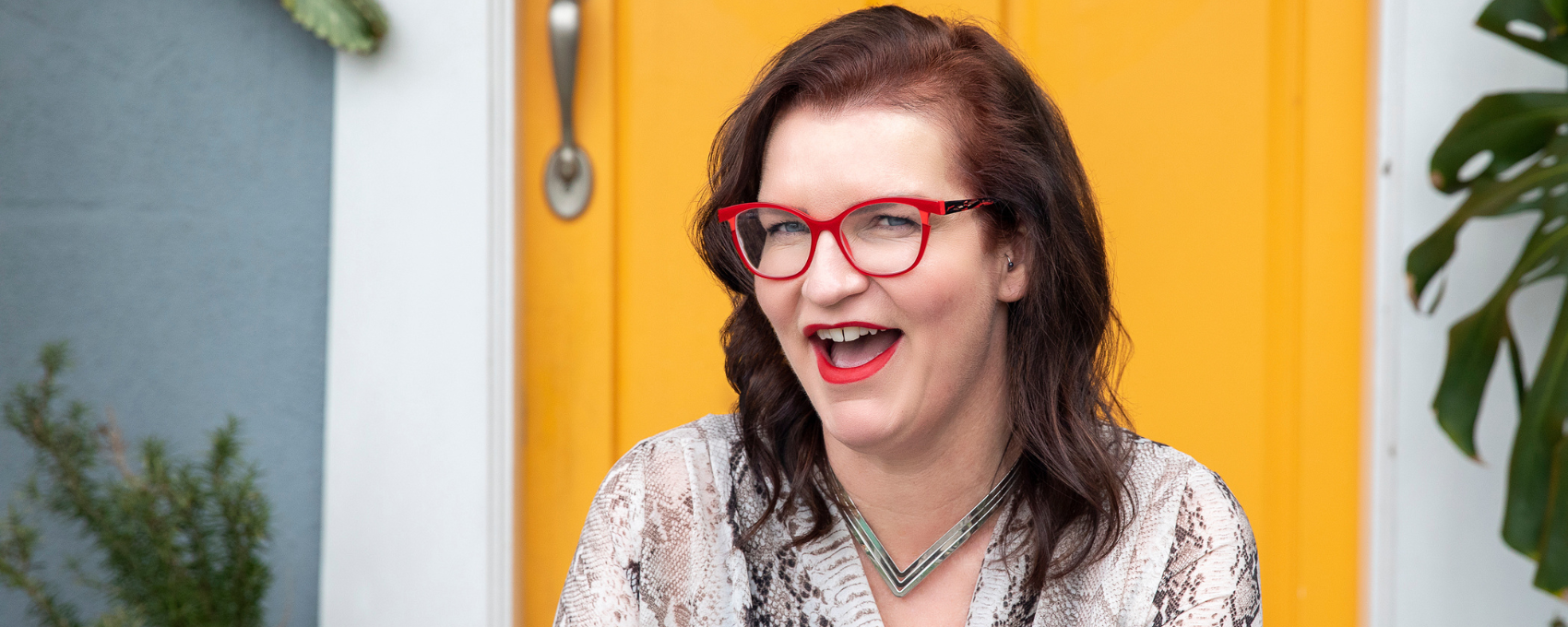From the Village: Chanelle Gallant on the 23rd anniversary of the Pussy Palace raid.
September 13, 2023

On September 14, 2000, Pussy Palace – a bathhouse event for women and trans folks – was getting into full swing. It was their fourth event in two years, where women and trans people took up space in a culture otherwise already well tread by cis gay men.
That night, the party – held at Club Toronto, the space known today as Oasis Aqualounge – met a similar fate other establishments had recently endured when they were raided by police – including The Bijoux and The Barn. “The police had been raiding all these businesses, harassing us, using all kinds of false pretences in order to initiate raids and investigations and lay charges,” says Chanelle Gallant.
At the time, Gallant was on the Toronto Women’s Bathhouse Committee (TWBC), the Pussy Palace’s organizing committee. On the 23rd anniversary of the raid, she speaks to us about the significance of this historical moment and what we can learn from it today. Following the raid, the TWBC launched and won a human rights complaint against Toronto Police Services, sued them, and fought the bogus liquor license charges against two volunteer team members in court.
“There was no way the police knew the fight they were in for. They wouldn’t have done it. At the time we won one of the largest settlements against a police force in Canadian history. The Chief of Police himself had to apologize. They were forced to introduce the first policy on how the police search trans people in any police force in North America,” Gallant says.
After the raid and against the backdrop of the trial, the TWBC continued to throw more Pussy Palace events. “It was informally a community decision to continue to hold bathhouses as an act of defiance,” Gallant says. “The community told us they didn’t want to let the police take the event from them. If our communities were willing to take that risk, then so were we.”
Gallant says that defiance was successful because of broad community organizing and shared solidarity. “The Pussy Palace raid really activated memories of the 1981 bathhouse raids, mobilizing so many gay men to join forces with our organizing against the police,” she says.
The TWBC also worked to build support across communities who were (and remain) targeted by police. “It’s not really rocket science. If you want a more multi-racial, multi-gender, multi-class event, party, or organization, then that’s what your leadership needs to look like too,” Gallant says, but she’s alarmed at the lack of solidarity some community members are currently showing, particularly toward trans people. “Some people feel like trans politics have only arrived in the last decade or so, but that’s not true. There have been meaningful attempts to address the transmisogyny in the queer women’s communities for a very long time.”
As for safety and contemporary non-issue issues like drag queens and children, Gallant believes these should be community decisions because, “We actually understand our culture and our spaces. We’re not looking at things through a homophobic lens that views everything gay as unsafe to kids” she says. “We know, of course drag queens are not a threat to children, but we also know other environments would be. We can see what real safety means, define that for ourselves collectively, and implement it.”
With respect to the current climate of anti-2SLGBTQ+ hate, Gallant says it isn’t unexpected. “We had a very brief reprieve, and it wasn’t much. Not everyone even got it. What we had was a tiny toehold for some people. That’s it,” she says. “We need to get into formation because the Pussy Palace shows us that collectively, we can fight the powers that are after us and we can win.”
Impact Stories
June 2025
One Among Us: a community for East-Asian and East-Asian Canadian trans and gender-diverse people
April 2025
Remembering Jake: The Volunteer Who Fostered Belonging
December 2024
Honouring Their Names, Honouring Their Stories
September 2024
Norie: Don't Hide Who You Are, Let's Be Proud!
Finding safe spaces for 2SLGBTQ+ youth at The 519’s Youth Action and Arts Space.
August 2024
Jaris Swidrovich: Lifting up unexpected perspectives on The 519 board
June 2024
Sush: Cooking with Salt, Pepper, and Love!
Volunteering with Abuelita Norma
May 2024
Jayan: Youth Activism Today and Tomorrow
From the Village: Connie Langille on the promise of The Village
November 2023
From the Village: Nik Redman reflects on Trans Fathers 2B
September 2023
From the Village: Toronto Bi+ Network's Tara Schorr on Bi+ Visibility Day
From the Village: Chanelle Gallant on the 23rd anniversary of the Pussy Palace raid.
July 2023
From The Village: Patrick Fahn, AIDS Memorial Architect
May 2023
December 2022
Mayumi: The More We Are Together, The Happier We’ll Be
Kirina: Transitioning Every Day, in Every Way
November 2022


